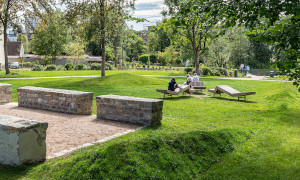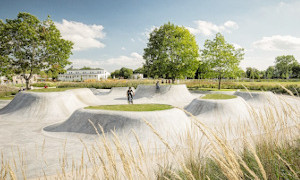On 13 May 2019, the Urban and Open Space Planning Working Group met in Berlin.
The effects of the transport revolution on urban and open space planning were discussed. In many cities, cycling facilities as well as infrastructures for e-mobility are currently being expanded. Unfortunately, this is often done according to purely technical aspects. In order to "reconcile" technical requirements and design, landscape architects need to actively approach traffic planners. The design of the traffic turnaround could also be an exciting topic for the Federal Foundation for Building Culture.
The fact that public open space is becoming increasingly important for preventive health care is evident in Stuttgart, for example, where a master plan entitled "Urban Movement Spaces" is currently being drawn up. With this plan, the city administration wants to develop strategies to promote movement in public spaces. From the point of view of the working group, it should be clearly communicated that landscape architects are the experts for realising the diverse requirements for public open spaces, including informal and formal sport, and for integrating them into an overall plan. Exemplary projects are helpful because they are illustrative. It was therefore decided to compile a collection of best practice urban movement areas. Project proposals from members and national groups are very welcome (e-mail to
Further topics of the meeting were the reform of urban development funding and current draft standards at European level on accessibility and crime prevention. The recommendations of the German Council of Environmental Experts "Thinking about new housing construction in the long term - For more environmental protection and quality of life in cities" contain important and correct approaches; key recommendations include the development of nationwide orientation values for the quality and quantity of open spaces and the strengthening of formal instruments for securing and developing open space qualities.
Source: bdla association magazine "Landschaftsarchitekten" 3/2019
- Latitude: 0
- Longitude: 0


